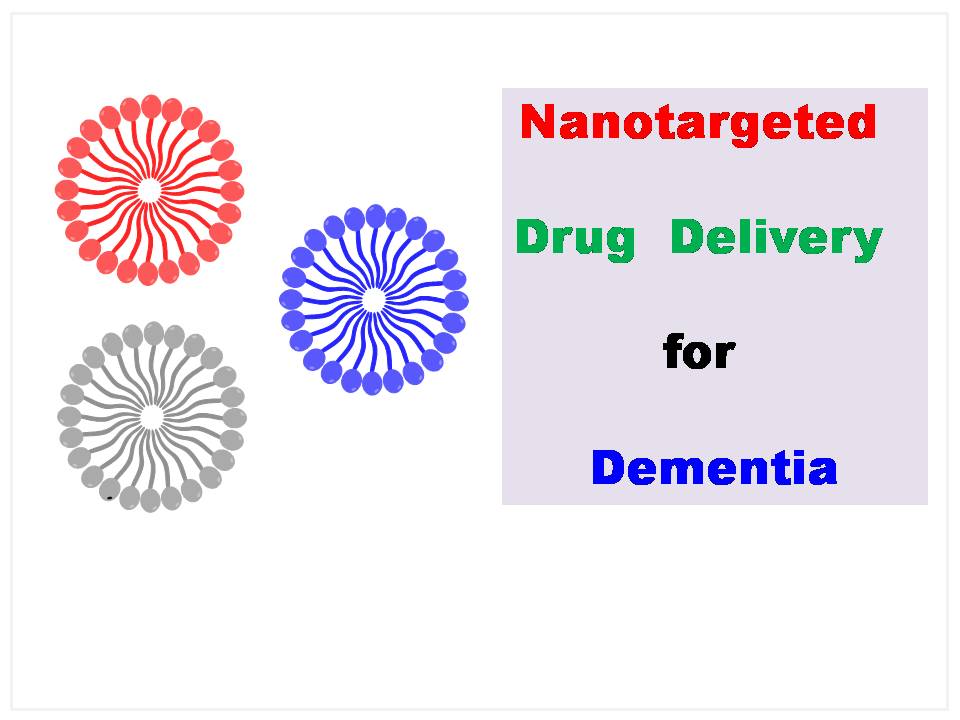Announcement News
Biobased nanocarrier of drug(s) to both ameliorate COVID-19 illness symptomatology and, thereby, delay progression of Alzheimer's disease
Date : 04-Aug-2021

Nanotargeted Drug Delivery for Dementia
Cerebrovascular risk factors for Alzheimer's disease precede cognitive decline, often by decades. By incorporating appropriate drug(s) into lipid (biobased) nanocarriers, one obtains a combination therapeutic for dementia treatment that targets certain cell-surface scavenger receptors (mainly class B type I, or "SR-BI") and thereby crosses the blood-brain barrier (BBB). The cardiovascular risk factors for dementia trigger widespread inflammation and oxidative stress; these two interacting processes lead to neurodegeneration, gradual cognitive/memory decline, and eventually (late-onset) dementia. Recent research indicates that chronic inflammatory stimulus in the gut may induce (e.g., via serum amyloid A (SAA)) the release of proinflammatory cytokines. At the same time, increased BBB permeability due to aging (or dysfunction), in turn, allows these proinflammatory cytokines to enter the brain and induce glia reactivity. These recent findings, and various past studies, indicate that inflammation plays an important role in the process of amyloid-beta deposition and, therefore, the inhibition of inflammatory cascades may attenuate amyloidogenic processes – such as Alzheimer's disease. Accordingly, an effective therapeutic strategy to delay dementia could be based upon nanotargeting drug(s), using lipid nanocarriers, toward a major SAA receptor responsible for certain SAA-mediated cell signaling events.
Note that the immune response and excessive neuroinflammation commonly observed in the very recent human coronavirus (COVID-19) pandemic may accelerate the progression of brain inflammatory neurodegeneration, and the hippocampus is reported to be particularly vulnerable to coronavirus infections -- which increases the probability of post-infection memory impairment and accelerating progression of Alzheimer's disease. Hence, the proposed multitasking combination therapeutic, using (biobased) lipid nanocarrier, may also display greater effectiveness at different stages of Alzheimer's disease; as a result, this multitasking (drug-delivery) therapeutic could represent a promising way to treat, delay, or even prevent the disease in the future.
Reference or news sources details:
J.S. D'Arrigo, (2020), Nano Progress 2(3), 25-30. [Link]
J.S. D'Arrigo, (2020), Am. J. Alzheimer's Dis. Other Demen. 35, 1-12. [Link]
J.S. D'Arrigo, (2021), Nano Progress 3(6), 11-18. [Link]
http://www.netplex.net/~cavcon
News Source: Ariviyal Publishing
Date: 02nd August 2021
